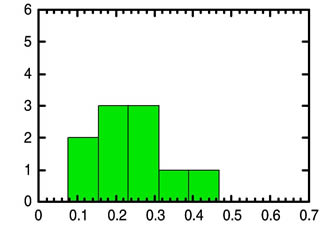Carbon Dating Undercuts Evolution’s Long Ages
Carbon Dating Undercuts Evolution’s Long Ages
Applying the uniformitarian approach of extrapolating 14C decay into the indefinite past translates the measured 14C/12C ratios into ages that are on the order of 50,000 years (2-50000/5730 = 0.0024 = 0.24 pmc). However, uniformitarian assumptions are inappropriate when one considers that the Genesis Flood removed vast amounts of living biomass from exchange with the atmosphere—organic material that now forms the earth’s vast coal, oil, and oil shale deposits. A conservative estimate for the pre-Flood biomass is 100 times that of today. If one takes as a rough estimate for the total 14C in the biosphere before the cataclysm as 40% of what exists today and assumes a relatively uniform 14C level throughout the pre-Flood atmosphere and biomass, then we might expect a 14C/12C ratio of about 0.4% of today’s value in the plants and animals at the onset of the Flood. With this more realistic pre-Flood 14C/12C ratio, we find that a value of 0.24 pmc corresponds to an age of only 4200 years (0.004 x 2-4200/5730 = 0.0024 = 0.24 pmc). Even though these estimates are rough, they illustrate the crucial importance of accounting for effects of the Flood cataclysm when translating a 14C/12C ratio into an actual age.


